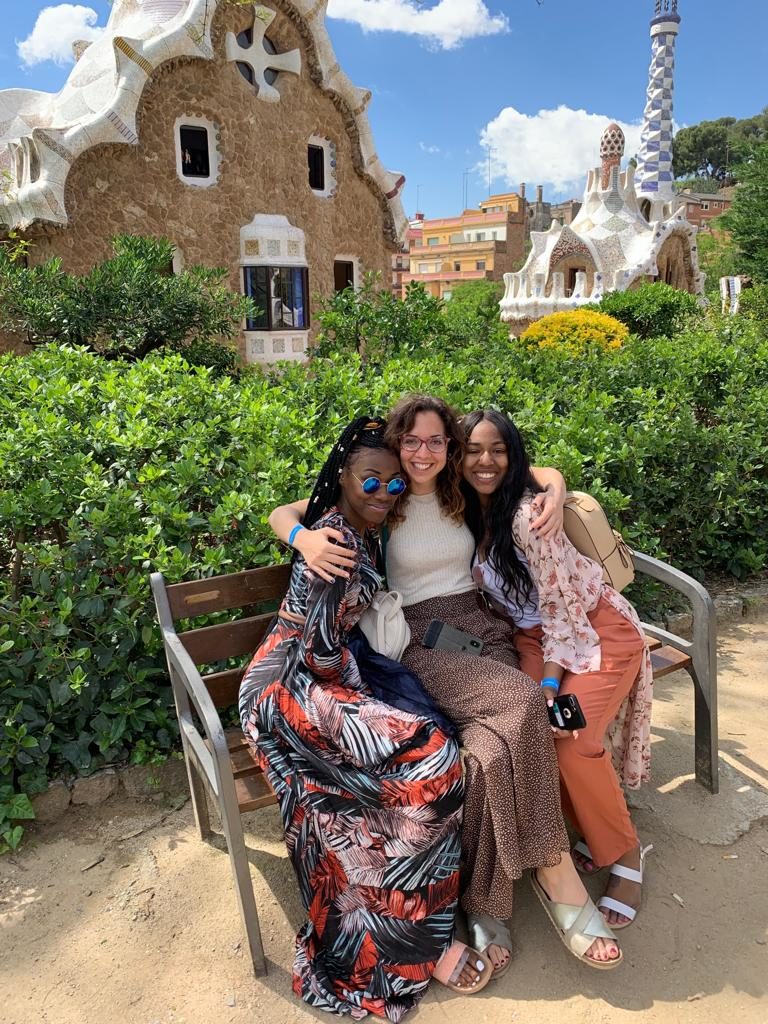Check out your dates and fees!

Application Deadline
Explore Diverse Subjects in the Heart of Catalonia!
Our Liberal Arts in English program in Barcelona, Spain, offers a semester-long journey into a wide array of subjects from an English-speaking perspective, set against the backdrop of one of Europe’s most dynamic and culturally rich cities. This program is perfect for students who wish to delve into liberal arts without the language barrier, while still immersing themselves in the vibrant Spanish and Catalan cultures.
Highlights:
Barcelona’s cosmopolitan atmosphere and its status as a cultural and architectural hub make it an ideal place for liberal arts students. The city offers endless opportunities for cultural exploration and academic inspiration, from its Gothic Quarter to the modernist landmarks by Antoni Gaudí.
Embark on a semester in Barcelona to enrich your academic journey with diverse liberal arts studies, all while experiencing the life and culture of one of Spain’s most fascinating cities.
Discover more!

Barcelona’s artistic vibrancy is a breathtaking fusion of past and future, where the architectural and surreal wonders of Gaudí and Dalí coexist with cutting-edge contemporary galleries. Its streets and plazas, alive with dynamic street art, offer an immersive cultural experience, positioning the city as a sanctuary for creatives and art enthusiasts alike.
The culinary landscape of Barcelona is a sensorial celebration, presenting an array of dishes that encapsulate the essence of Catalan flavors. From traditional favorites like paella and tapas to avant-garde offerings found in its lively food markets, students can embark on a delectable journey through Catalonia’s culinary heritage.
In Barcelona, the melodious tones of Catalan enhance the multicultural tapestry alongside Spanish, offering students a vibrant linguistic immersion. Engaging in language exchanges and embracing daily cultural interactions foster a deep connection with Barcelona’s diverse identity, broadening students’ linguistic skills and cultural understanding.
Living in Barcelona is to immerse oneself in a lifestyle marked by diversity and cosmopolitanism. Whether it’s participating in the rich traditions of local festivals like La Mercè or finding tranquility along its picturesque beaches, Barcelona offers a harmonious blend of academic advancement, cultural depth, and memorable moments. 🇪🇸✨
Your semester in Barcelona is an expansive journey beyond academics, delving into the heart of Catalan and Spanish culture. Our curated selection of cultural activities and excursions, organized by us or recommended for personal exploration, aims to deepen your connection to this vibrant community. Below is an overview of the cultural odyssey that awaits you:
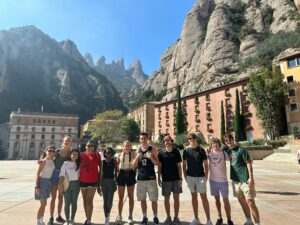 Cultural Activities Organized by the SSA Barcelona Team:
Cultural Activities Organized by the SSA Barcelona Team:(While not organized by us, these are highly recommended experiences.)
Please note that while most organized activities are included in your program fee, some personal explorations may incur additional costs. Availability may vary depending on program timing.
This broad array of cultural experiences ensures you’ll fully embrace life in Barcelona as part of its dynamic fabric.
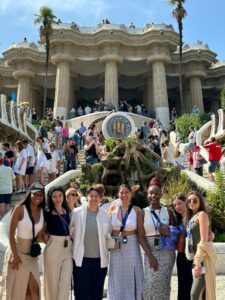
Catalonia’s cultural tapestry is vibrant and unique, deeply enriched by a variety of traditions that celebrate community, bravery, and artistic expression. Here are some of the most cherished Catalan traditions:
Castells: Marvel at the human towers—”castells”—a symbol of teamwork and courage as people create towering structures by standing atop one another.
Correfocs: Experience the fiery “correfocs” parades during festivals, where participants dressed as devils run through the streets wielding fireworks—a vivid display of energy and color.
Sardanes: Join in the circle to dance the “sardana”, a traditional Catalan dance signifying unity and community as dancers hold hands and move in harmony to music.
La Diada de Sant Jordi: Celebrate love and literature on April 23rd with La Diada de Sant Jordi, when Catalans exchange roses and books—akin to Valentine’s Day but with a literary twist.
Caga Tió: Embrace the whimsical Christmas tradition of “Caga Tió”, where children hit a decorated log that ‘defecates’ small gifts.
La Patum: Witness La Patum in Berga, an event acknowledged by UNESCO for its mix of religious, pagan elements along with theatrical performances, music, and dance.
Els Pastorets: Delight in “Els Pastorets”, traditional plays recounting the nativity story—a staple during the Christmas season.
Castanyada: Indulge in “Castanyada” festivities on All Saints’ Day, savoring roasted chestnuts, sweet potatoes, and “panellets”, small almond-based pastries.
Gegants i Capgrossos: Behold “Gegants i Capgrossos” processions featuring large figures parading down streets representing historical or mythical characters.
El Ball de Gitanes: Experience “El Ball de Gitanes”, a traditional dance performed during local celebrations wearing vibrant costumes with coordinated choreography.
These rich traditions not only mirror Catalonia’s diverse cultural heritage but also strengthen its distinct identity within Spain.
Barcelona stands out as Spain’s most international, cosmopolitan, and intercultural city. Here, social and intercultural assistance is not just an initiative but an integral part of community life.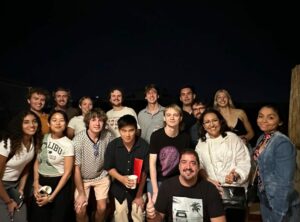 Numerous organizations and programs are committed to fostering inclusion, equality, and mutual understanding among the city’s diverse communities. Key areas of action include:
Numerous organizations and programs are committed to fostering inclusion, equality, and mutual understanding among the city’s diverse communities. Key areas of action include:
Integration Programs: Barcelona offers programs aimed at integrating individuals from varied cultures and backgrounds into society—ranging from language classes to cultural activities that encourage interaction and mutual understanding.
Support for Refugees and Migrants: Various non-profit organizations and government agencies in Barcelona dedicate resources to supporting refugees and migrants through legal advice, housing assistance, and cultural integration programs.
Multicultural Education: Educational institutions in Barcelona champion multicultural education by including curricula that reflect cultural diversity and promoting intercultural understanding among students.
Community Events and Celebrations: The city hosts events and celebrations that spotlight its cultural diversity. These festivities serve as platforms for cultural exchange and community bonding.
NGOs and Volunteering: A multitude of NGOs operate in Barcelona, tackling social and intercultural issues. Volunteering plays a critical role in running programs aimed at enhancing quality of life and fostering community understanding.
Intercultural Meeting Spaces: Barcelona is home to spaces designed for intercultural meetings where people from varied backgrounds can share experiences and build bridges of understanding.
Community Empowerment: Initiatives are undertaken to empower local communities by providing necessary tools for active participation in the city’s social and economic life.
In summary, Barcelona endeavors to be an inclusive, supportive city where social and intercultural support acts are essential in forming a diverse yet unified community. These efforts contribute to creating an environment where individuals from various backgrounds can thrive, enriching the city’s social fabric.
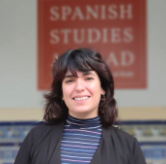
At SSA Barcelona, we recognize the challenge of transitioning from a small town or city to the bustling metropolis of Barcelona. To transform this vibrant city into your new home, our team focuses on proactive guidance and support, emphasizing active engagement over passive observation.
Emphasizing Student Over Tourist: From day one, we actively differentiate between being a tourist and becoming an international student. Through orientation sessions and ongoing support, we provide an integrative perspective that encourages you to understand and engage with the local culture, duties, and societal obligations. Our aim is not just to navigate away from the tourist lifestyle but to cultivate a meaningful sense of belonging in Barcelona.
Cultural Integration Activities: We facilitate various activities designed to immerse you deeply into both the spectacular diversity and daily life of Barcelona. From guided tours that avoid typical tourist trails to language exchange programs that foster genuine connections with locals, our activities are tailored to promote your transition into a fully engaged citizen of this dynamic city.
Personalized Support: Recognizing the potential overwhelm that comes with city life’s fast pace, noise, and pollution—especially for those from quieter backgrounds—we offer personalized support. Our team is here not just to guide but also to listen, providing comfort and advice as you navigate this new environment.
By focusing on these actions, SSA ensures that your study abroad experience is far more than academic enrichment; it’s about transformational personal growth within Barcelona’s cosmopolitan setting. We invite you to join us in embracing every aspect of living in Barcelona—turning what might initially appear overwhelming into an enriching chapter of your life.
Students may select to live with a local host family or in a student residence.
Students interested in the cosmopolitan experience of a student residence can opt for one in Barcelona. The city is a popular destination for international students and those from other parts of Spain, offering several private student residences throughout the city. These residences are typically centrally located, providing easy access to attractions and the city center. They also offer a diverse mix of students, creating unique social opportunities.
Please note that due to high demand, SSA cannot always guarantee placement at a specific student residence. Prices can vary, and supplemental charges are required in addition to program costs as meals are not included. If you’re interested in staying in a student residence, it’s essential to inform us as soon as possible to secure your place, which may involve paying a deposit. SSA carefully vets all student residence options to ensure safety, cleanliness, and convenient locations.
Students have the option to immerse themselves fully in Barcelona’s diverse and cosmopolitan life by choosing to live with a host family. Homestays offer not just room and board, which includes breakfast and dinner, but also laundry and room cleaning services. Should you have specific dietary or accommodation needs, we’re able to make arrangements, though this may incur an additional fee.
Living with a host family in Barcelona opens up the inspiring opportunity to delve into local customs, language, and the everyday rhythms of city life. It’s an unparalleled experience of receiving personal support and insight from your hosts. Our host families come from a variety of backgrounds reflecting Barcelona’s richly diverse character—not limited solely to traditional local profiles. This ensures that whether you’re seeking a deeply authentic experience or a multicultural exchange, opting for a homestay can enrich your stay with genuine connections to our community. If you’re drawn towards an intimate living situation and wish to forge deeper bonds within the local or international community here, choosing a homestay in Barcelona is undoubtedly a rewarding path.
The available courses for students vary by program and are distributed between the SSA center and local universities. Please see the selection below, and contact us for the most current course information:
Discover more!

Universitat Pompeu Fabra (UPF) is a dynamic and innovative educational institution, recognized for its excellence in academia and research. Located in the heart of Barcelona, UPF is known for its strong emphasis on social sciences, humanities, health and life sciences, and communication and information technologies.
Established in 1990, UPF has quickly gained a reputation for its commitment to quality education, consistently ranking among the top universities in Europe. It boasts a diverse community of around 13,000 students and a distinguished faculty committed to fostering a rigorous and enriching learning environment.
Renowned for its interdisciplinary approach and international outlook, UPF has received numerous accolades, including a prominent position in the Times Higher Education (THE) Young University Rankings. The university’s modern facilities, combined with its vibrant urban setting, offer students a unique and comprehensive academic experience.
The Universitat Autònoma de Barcelona (UAB) is a prestigious institution of higher education and research located in Barcelona, Spain. Established in 1968, UAB is renowned for its excellence in teaching and research, offering a wide range of undergraduate and postgraduate programs across various disciplines. With a modern campus and a global outlook, UAB provides an ideal environment for academic growth and international collaboration.
The Liberal Arts in English Program in Barcelona, Spain, for a semester or academic year, offers an unparalleled opportunity for students to immerse themselves in a vibrant cultural and academic environment without the necessity of Spanish language proficiency. This program is ideal for those who wish to explore a wide range of subjects from humanities to social sciences, all while experiencing the dynamic city of Barcelona, a hub of culture, art, and innovation in the heart of Catalonia.

The mission of SSA is to promote our students’ in-depth understanding of Spanish-speaking countries through specifically designed and academically rigorous university-level and cultural travel programs.

INSTITUTIONAL RELATIONS Manager
Beth is your go-to contact for navigating the complex process of study abroad.
She aims to respond to all inquiries within one business day.
Don’t hesitate to drop a message. No question is too small!


Experience the Fusion of Cultures in San Juan’s SSA Adventure! 🌴📚🇵🇷

Dive into Authentic Cultural Immersion in the Heart of Argentina! 🇦🇷📚🌆

Navigate Through Panama’s Cultural Diversity with English Studies! 🛤️🌐🇵🇦

Venture into Patagonia’s Wild Beauty with the SSA Environmental Studies Program! 🏞️🔍🇦🇷🇨🇱
Trying to learn more about Study Abroad?
We’re sending you our A-Z study abroad guide, including:
